NMD Placement & Housing
Non-Minor Dependents have several options for where to live. They may remain with their current caregiver, live by themselves, live in an apartment with other foster youth, or live in a different foster home. If the youth is living in a group home, they may remain there until they turn 19 or finish high school, whichever comes first.
Types of Housing Options:
SILP (Supervised Independent Living Placement)
An NMD can live in a college dorm, rent a room from a friend or family member, or get their own apartment. Read more about SILPs here.
The youth’s social worker has to decide if the NMD is ready to live in a SILP.
If NMDs are parenting, they can get an infant supplement for their baby, and even more money if they create a Parenting Support Plan.
If the NMD disagrees with the social worker’s readiness assessment or SILP inspection, the NMD has the right to request reconsideration: ask the PSW how to appeal decision or raise the issue with the NMD’s attorney. NMDs living in SILPs receive their foster care payments directly and use the money to pay for rent and living expenses on their own.
The place where the NMD wants to live must pass the county’s health and safety inspection.
SILP Tips (from the East Bay Children’s Law Offices)
Youth should not sign a lease without talking to their lawyer first! An apartment lease is a binding legal contract.
Youth can receive their SILP check more quickly if it is deposited into their checking account. The CASA should work with the youth and their PSW to set this up.
It can take 6 or more weeks for the first SILP check to arrive, so youth should have another plan in place to pay their first few months of rent.
If the youth does not have enough money saved to start a new lease, is there a family member or friend they can rent from while they save up?
Transitional Housing Programs
THPs are apartments that NMDs share with other foster youth or former foster youth. Some transitional housing programs are for young adults with open cases, while others are for young adults with closed cases. For more facts and details of each program, click on the type below. Note that there are waitlists for most transitional housing programs, so plan ahead!
THPP (Transitional Housing Placement Program): Transitional housing for youth ages 16-18 with open cases. Find the current list of THPP providers here.
THP+FC (Transitional Housing Placement -Plus- Foster Care): Housing for NMDs 18-21, with open cases under Extended Foster Care. Find a list of THP+FC providers here.
THP-Plus (Transitional Housing Program - Plus): For young adults with closed cases, up to age 25 or 26, if working toward completion of a post-secondary educational degree. Find a list of THP-Plus providers here.
Supplemental Housing Resources
Food:
Unless they make too much money to qualify, all NMDs should be enrolled in CalFresh (food stamps). See our NMD Benefits section for more information.
In addition to helping with CalFresh enrollment, CASAs should work with their NMD to learn food budgeting and healthy and economical cooking skills. Learn more through these videos.
NMDs should also be aware of the supplemental food assistance options and food banks in their communities. NMDs can search by type of organization and location here.
Housing Supplies:
SF-ILSP Moving and Emancipation grants: up to $1,000 total, between the two.
San Francisco Foster Youth Fund: $500 grant upon high school graduation, as long as the youth is in the same calendar year as their graduation.
Friends of SF-ILSP/Foster Youth Rising: help with both furniture costs and utility bills.
Additional Housing Resources through Partner Organizations:
211 United Way of the Bay Area is a free, multilingual, 24/7 resource that provides information and referrals to human service agencies and resources for everyday needs and times of crisis., including housing, food, clothing, rental assistance, employment, support childcare, and more.
First Place for Youth serves foster kids ages 18-20 who are enrolled in Extended Foster Care, as well as youth 18-24 who were in foster care on their 18th birthday and have since experienced homelessness. First Place for Youth welcomes all clients, regardless of previous arrests, incarceration or substance use.
Larkin Street Youth Services provides services to youth 12-24 including: food, showers, laundry, clothing, computer access, emergency shelter for homeless youth, community and transitional housing, medical services, case management, individual and group counseling, education and employment support services.
LYRIC serves as an Access Point for LGBTQ youth experiencing homelessness and marginally transitioned age youth from 18 to 24 years old.
The Salvation Army’s Railton Place is a 110-bed transitional and permanent residence for adults. Of these units, 20 are provided to young adults ages 18-25 or 26 who have aged out of the foster care system. Each resident gets their own fully furnished studio apartment. Program services include case management, substance abuse counseling, mental health therapy, money management and help with education and gaining employment.
Booker T Washington serves 18-24-year-olds who live in San Francisco. The programs are designed to meet each young adult where they are with critical case management, mentorship, training and resource referral.
